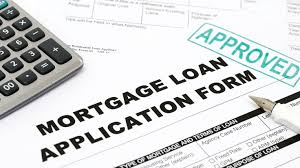Qualifying for a Mortgage Loan
USINFO | 2013-12-18 17:10

Qualifying for a Mortgage Loan
Banks don't loan money to just anybody. They want to feel secure that you're able and responsible enough to pay them back. So you'll usually need these things in order for the bank to give you a loan:
Enough money for the Down Payment (3 to 20% of the purchase price)
Two years of steady employment (same job or field)
Good (not perfect) credit score (~660+, as of 6/09)
Monthly income that's 2 to 3 times higher than your expected monthly mortgage payment
If you don't have all four items above right now don't fret. You still have some options.
Meet with a lender anyway. Don't just assume you can't get a mortgage. It can't hurt to go talk to a bank and see whether they're willing to give you a loan. Even if they won't give you a loan they can probably help you by letting you know where the deficiencies are, so you can work towards qualifying in the future.
Try for a Low-Doc or No-Doc Loan. As I write this in 2009 these are fairly rare now because banks lost a lot of money by giving these out like candy, but as time goes by I think banks will offer more of these again. Not as many as they used to, but it will still be an option for some people, so I'll continue to keep this section here.
Anyway, these loans are for people who can't (or don't want to) provide details about their income or their employment. The most popular is called a Stated Income loan because you just "state" how much income you have without offering any proof. It's also called NIV for "No Income Verification" because your income isn't verified. With No Ratio and No Doc loans, you don't even say how much you make. You can think of these as "Don't Ask, Don't Tell" loans. The No Doc is also called NINA, for "No Income & No Asset verification". Because income is never proven with any of these loans I joking call them the "Drug Dealer Loans", though of course there are many legitimate reasons for wanting a loan of this type.
Since the bank is taking a bigger risk on you with a No-Doc or Low-Doc loan, the interest rate is higher than on a traditional loan, and the exact amount depends on your credit score, your lender's preference, and which flavor of low-doc/no-doc loan you get. The premium you'll pay will range 0.125 to 3.0 percentage points over a traditional loan.
I got one of these loans myself once. I had started a new business a year earlier and was easily making enough money to make the mortgage payments on the house I wanted, but because the business was brand-new I didn't have income history and there was no way a bank would give me a traditional loan. My good credit, and my willingness to pay a tiny amount of extra interest, was enough to get me the loan without having to supply any paperwork.
Share this page